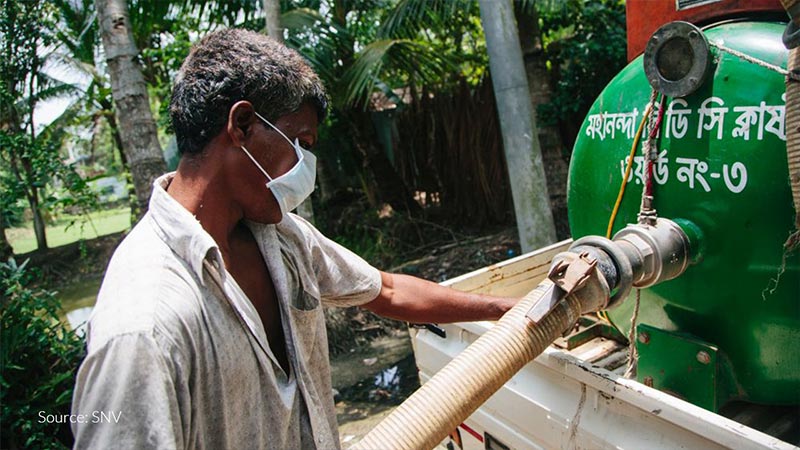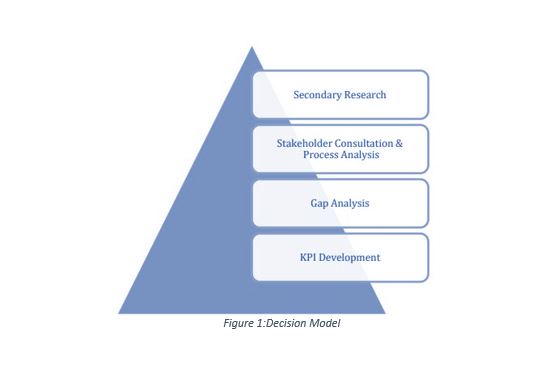GET IN TOUCH
- Please wait...

The Local Government Institutions (LGIs), such as City Corporations and Municipalities, are responsible for Faecal Sludge Management (FSM) in Bangladesh. Several initiatives to protect public health and the environment have been taken by LGIs, to tackle the negative impact stemming from the lack of necessary sludge treatment in the country. These include restricting unsafe practices, issuing licenses to private operators, and providing training and licensing in an effort to formalize the informal sector. These initiatives aim to drive the demand for better-quality services, which in turn will enhance hygiene while enabling the creation of jobs and business development.
As efforts to promote safe fecal sludge collection and the shift to the adoption of mechanical emptying continues, the Local Government Institutions (LGIs) have come to rely on outside support, due to a lack of adequate resources and funds, to invest in Faecal Sludge Management (FSM) system.
One such initiative resulted from SNV Netherlands Development Organization, which commissioned a study under the project titled “Analysis of Municipal Financial System and Development of Key Performance Indicators (KPIs) for FSM service”. The project aimed to analyze the gaps in Public Financial Management (PFM), necessary for supplying the Faecal Sludge Management (FSM) services, as well as provided key recommendations to 6 Local Government Institutions (LGIs) namely, Khulna City Corporation, Kushtia Paurashava, Jhenaidah Paurashava, Benapole Paurashava, Jashore Paurashava, and Gazipur City Corporation.
To generate performance-driven values within FSM, LightCastle Partners adopted a top-down decision model that included 4 components, including- secondary research, stakeholder consultation, process analysis, gap analysis, and KPI development.

The existing process and its identified gaps were then compared against global best practices and the findings were used to create a structured PFM model that augments FSM across all LGIs. Upon completion of the gap analysis, the team put together Key Performance Indicators (KPI) list for the six intervened LGIs with the aim to help them improve the existing management processes and ensure greater accountability and transparency from the LGIs.
The improvement of FSM service delivery and management will eventually ensure greater accessibility to improved sanitation for the population of Bangladesh, particularly, the marginalized population. This plays a vital role in achieving SDG 6, which aims to ensure the availability and sustainable management of water and sanitation for all. In particular, Target 6.2 of this SDG has the objective of attaining adequate and equitable access to sanitation and hygiene for all, along with ending open defecation, by 2030 keeping the needs of girls, women, and people in vulnerable situations into special consideration.
Our experts can help you solve your unique challenges